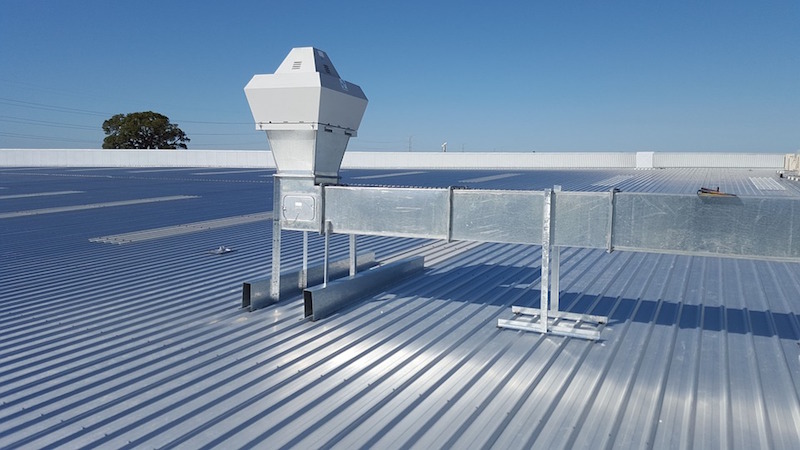A group of commercial manufacturers supported by International Association of Plumbing and Mechanical Officials (IAPMO) and members of the Hydronics Industry Alliance, a Committee of the Radiant Professionals Alliance, have released BEST: The Building Efficiency System Tool.
Available free of charge, BEST allows users to accurately compare different styles of HVAC systems. HVAC systems are all tested to different standards, with various efficiency ratings (EER, IEER, SEER, COP, HSPF), as they are applied in an actual building.
BEST uses the Building Energy Efficiency Ratio (BEER), which takes certified AHRI data, manufacturers’ published performance data at multiple performance points, as-applied correction factors, performance curves for components, pipe and duct required in a typical system. It combines these elements to bridge the gap between certified equipment efficiencies and real-world building system efficiencies.
Users enter the square footage of the building, the number of stories, and the nearest city for local weather data, and then choose up to four types of HVAC systems to compare from more than 30 pre-loaded systems.
BEST features more than 100 default input settings, including system cost per square foot (provided by more than 50 contractors around the U.S.), each of which are adjustable to model any building in any location. BEST outputs estimated installation cost, replacement cost, maintenance cost, monthly energy cost, electrical and fossil fuel consumption costs, total life cycle cost, cumulative life cycle cost by year, system payback time (as compared with other modeled systems), pump and fan HP, system integrated energy efficiency ratio (IEER), coefficient of performance (COP), and more.
Related Stories
Urban Planning | Jul 24, 2023
New York’s new ‘czar of public space’ ramps up pedestrian and bike-friendly projects
Having made considerable strides to make streets more accessible to pedestrians and bikers in recent years, New York City is continuing to build on that momentum. Ya-Ting Liu, the city’s first public realm officer, is shepherding $375 million in funding earmarked for projects intended to make the city more environmentally friendly and boost quality of life.
Concrete | Jul 19, 2023
Public policy hindering widespread adoption of sustainable concrete
Researchers are making significant strides in reducing embedded carbon in concrete, but public policies have been slow to adopt this more sustainable option.
Sustainability | Jul 19, 2023
California lawmakers approve governor’s plan to accelerate green construction
California lawmakers recently approved Gov. Gavin Newsom’s infrastructure streamlining plan that aims to accelerate clean energy and infrastructure projects.
Codes and Standards | Jul 19, 2023
Office leasing in major markets by financial services firms rebounds to pre-pandemic norms
Though the pandemic led to reductions in office leasing by financial services firms in gateway markets, a recent report by JLL found a notable leasing resurgence by those firms.
Codes and Standards | Jul 17, 2023
Outdated federal rainfall analysis impacting infrastructure projects, flood insurance
Severe rainstorms, sometimes described as “atmospheric rivers” or “torrential thunderstorms,” are making the concept of a “1-in-100-year flood event” obsolete, according to a report from First Street Foundation, an organization focused on weather risk research.
Sponsored | Fire and Life Safety | Jul 12, 2023
Fire safety considerations for cantilevered buildings [AIA course]
Bold cantilevered designs are prevalent today, as developers and architects strive to maximize space, views, and natural light in buildings. Cantilevered structures, however, present a host of challenges for building teams, according to José R. Rivera, PE, Associate Principal and Director of Plumbing and Fire Protection with Lilker.
Codes | Jul 10, 2023
Water Demand Calculator outperforms traditional plumbing codes for energy, carbon, and water savings
Using IAPMO’s Water Demand Calculator tool can result in energy, carbon, and water savings as compared to using traditional plumbing specification methods in plumbing codes, according to a study by Arup.
Contractors | Jun 30, 2023
Construction industry task force aims for standardized carbon reporting
A newly formed Associated General Contractors of America (AGC) task force on decarbonization and carbon reporting will address the challenges around reporting and reducing carbon emissions in the construction industry.
Standards | Jun 30, 2023
New ASHRAE standard aims to reduce disease transmission risk in indoor spaces
ASHRAE Standard 241, Control of Infectious Aerosols establishes minimum requirements to reduce the risk of disease transmission by exposure to infectious aerosols in new buildings, existing buildings, and major renovations. Infectious aerosols are tiny, exhaled particles that can carry pathogens that cause infections or disease.
Affordable Housing | Jun 27, 2023
Racial bias concerns prompt lawmakers to ask HUD to ban biometric surveillance, including facial recognition
Two members of the U.S. House of Representative have asked the Department of Housing and Urban Development to end the use of biometric technology, including facial recognition, for surveillance purposes in public housing.

















